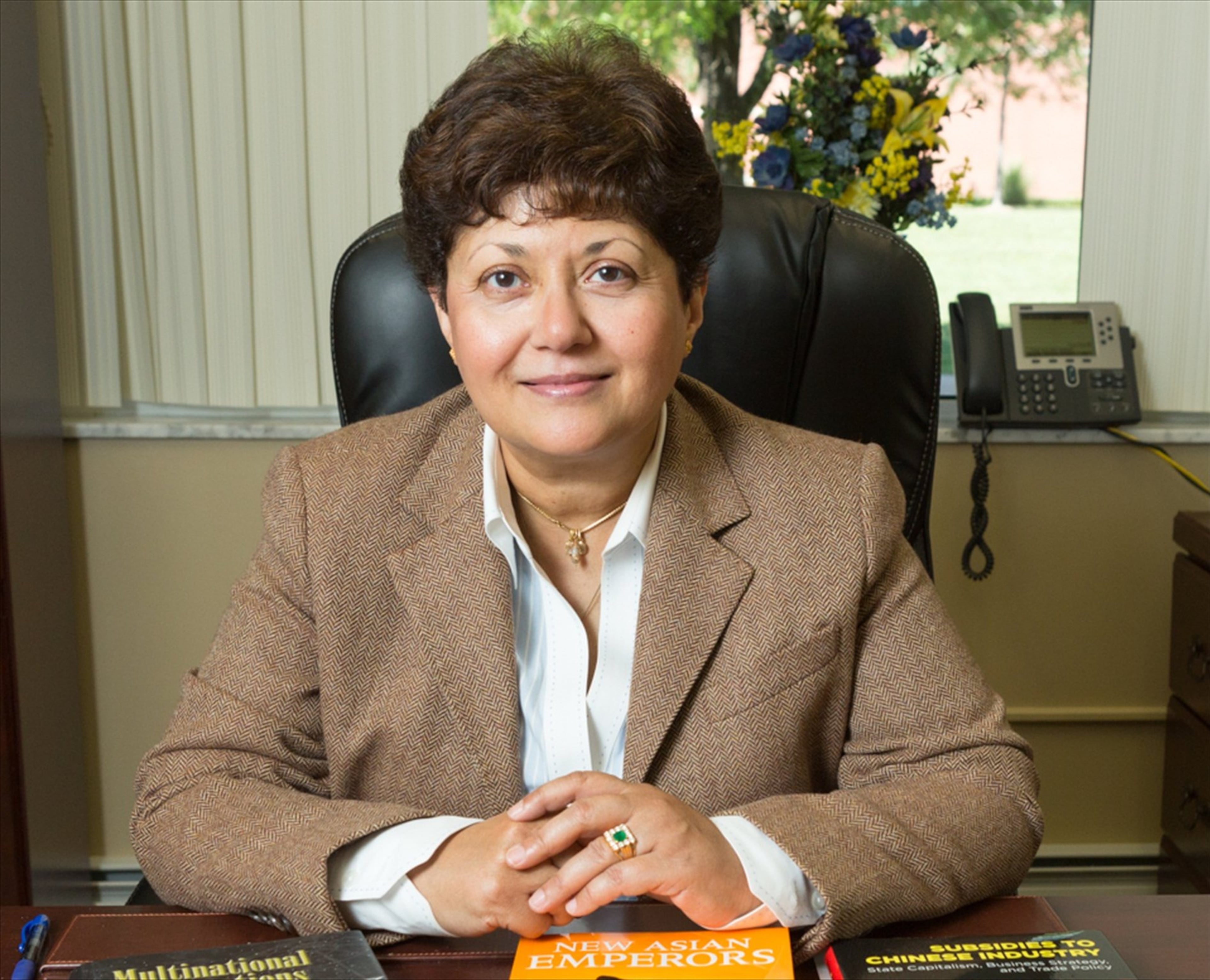OPINION: Why a return to ‘normal’ may not be good or even possible

Well, we’ve made it through four months of the COVID-19 pandemic. Atlanta and the rest of the world are reopening, slowly slipping back into normal.
My life, thank God, won’t look that different, at least not externally.
Indeed, a lot of us will return to what we were doing before the pandemic struck. Work. Family. Work.
For others, life will never be the same. Some businesses will reopen while others will be forced to shutter. Some people will continue to struggle to buy food and pay their rent while politicians continue to make promises they cannot keep. They will pledge anew to make health care accessible to all, to reform our criminal justice system, to make America normal again.
But what is normal?
Normal is what is typical, whatever lives up to our ideal. Normal is what’s familiar and safe. But it can also be horrifying and debilitating.
Usha Haley, W. Frank Barton Distinguished Chair in International Business and a social scientist at Wichita State University, says normal differs by culture, nation, age and era.
RELATED | Coronavirus outbreak: complete coverage
“There was a time when slavery was normal in the South,” she said. “Our first president had slaves; but it’s rightfully considered abhorrent now, and we see it as our original sin. There was a time when women couldn’t vote, and in several societies, they still cannot. Just 20 years ago, it was normal for women in certain positions to be subject to sexual advances. It is considered outrageous now, and we have had a #MeToo movement.”
Concepts of normalcy change, as they always have done. Currently, though, rates of change have accelerated because of various global factors, including technology and immigration.
But Haley maintains this concept of averaging everything out isn’t very helpful.
“It obfuscates more than it explains,” she said.

It’s hard, of course, to disagree with that.
“This idea of normalization never has meant much,” Haley said. “It’s much better to ask who is affected, who benefits, and who doesn’t. Everybody is not affected the same way. Normal isn’t what we should strive for. We should strive for a better society.”
As cities and states decided last week to relax social distancing orders, to get back to normal, I couldn’t help thinking of all the ways life shouldn’t be considered normal. Some people work two and three jobs but can’t afford to take off if they get sick. That shouldn’t be normal. There are women and men, for that matter, who are threatened every day with abuse. For them, home is a dangerous place. That shouldn’t be normal. And there are tens of thousands of kids who will go to bed hungry tonight. That should never be their normal.
RELATED | Why surge in foster care placement will follow COVID-19 pandemic
For Mical Raz, a doctor of internal medicine and health policy professor at the University of Rochester, it isn’t even normal or inevitable to get one’s health insurance through an employer and to be dependent on that.
“Now that millions have lost their jobs and presumably their insurance, it’s a good time to ask why our approach to providing Americans with access to health care is so messed up,” she said. “It is not normal to worry about losing your access to health care when laid off amid a pandemic, and equally abnormal to seek a new job which will provide these benefits.’’
Ronald H. Aday, a sociology professor at Middle Tennessee State University, goes even further.

“Warehousing the elderly in nursing home death traps alone has not always been the normal thing to do, but it has become the ‘new normal,’” he said. “The fact that privately owned corporations trading on Wall Street are financially benefiting from these institutional living conditions is an illustration of what is now considered the norm.”
Add to those prisoners, many of whom are elderly, who are trapped in overcrowded facilities like sitting ducks. Does a return to “normal” mean continuing to warehouse those who are among the most vulnerable and unlikely to pose a threat, or will COVID-19 be the instigator of prison reform, mandating the release of those low-threat individuals from our massive prison population?
RELATED | So long, summer. It’s been a real crazy time
“When COVID-19 came to our shore, the rich and famous were able to collect extended family members and retreat to a gated community in one of their large vacation homes. Isolated from the masses, this is their ‘new normal,’” Aday said. “Returning to ‘normal’ for them will be hosting TV shows like ‘The Voice’ or ‘American Idol’ in front of a live audience. However, for many Americans, life will never return to normal.”

Looking back, he said, we haven’t seen normal since 9/11, which led to the Department of Homeland Security emerging with 240,000 employees to keep us all safe.
It remains to be seen what normal will come to mean after the COVID-19 crisis subsides. What is certain, he said, is the world will no doubt be different.
In many ways and for many reasons, it should be different. We should definitely strive to be better, especially to each other.
To do that, Haley suggested we look where the fault lines have been drawn. That’s where the disintegration is happening.
“Nurses and health care professionals who are putting their lives at risk and are poorly compensated, that fault line seems obvious. It includes people who keep our supply chains running, but who are poorly compensated. It includes workers in meat processing plants,” she said. “These are some of the fault lines that are becoming more and more evident as they do in any crisis.”
The temptation for a lot of us is to wax nostalgic here, but except to welcome back our capacity to feel shame, to muster the courage to fix all that is broken, I, for one, hope we’ll resist returning to normal. I hope we’ll make compassion the guiding norm.
Now and always.
Find Gracie on Facebook (www.facebook.com/graciestaplesajc/) and Twitter (@GStaples_AJC) or email her at gstaples@ajc.com.


